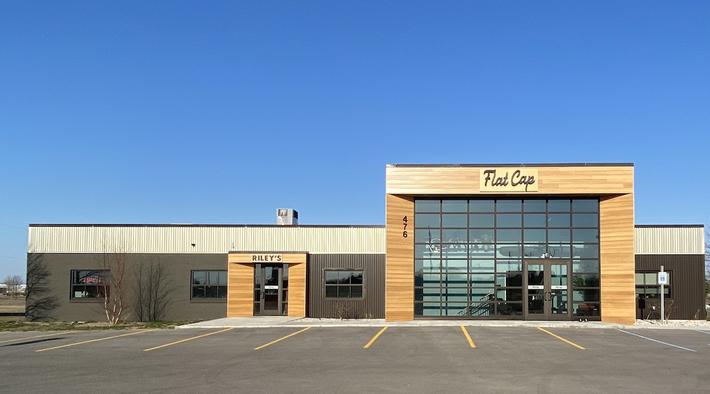Saving American Jobs
March 15, 2009
Saving American JobsR. Thomas Buffenbarger 3/23/09
In January alone, 598,000 jobs were lost. More than 200,000 of those jobs were lost in the manufacturing sector. The employment rate now stands at a staggering 7.6 percent. The global credit crunch has, finally and decisively, thrown the gears of growth into reverse.
This global recession is like a runaway tractor-trailer. Downshifting works, once in a while. But if the incline is too steep or the load too heavy, downshifting destroys the gearbox. Momentum does the rest. When the rig comes to rest--and it will, eventually--the wreckage is found everywhere.
The just-passed stimulus bill will repair some of the damage done to America’s economy. But a second stimulus package is needed. And revitalizing America’s manufacturing sector must be its highest priority.
America’s trading partners will not buy a trillion dollars in U.S. Treasury notes to finance our recovery while their own economies sink deeper into recession. They’ve already been burned badly once. Yankee traders sold them the toxic debt--the subprime mortgages, credit default swaps and collateralized debt obligations--that triggered this global recession. Selling them more commercial paper stamped “Made in America” is not a viable option. Our only recourse is to make things other nations will buy. So to stimulate our own economic revival, we must renovate our plants, install new machinery and hone the skills of our workforce.
America needs a 21st Century version of Franklin Roosevelt’s Works Progress Administration. Roosevelt put millions of Americans back to work on an emergency basis in 1935. He did so by creating jobs that would produce “permanent improvements in living conditions or that creates future new wealth for the nation.”
Roosevelt’s basic strategy can be re-engineered for the modern manufacturing sector. Today’s unemployed can be put to work renovating factories and installing new equipment; devising new financing, marketing and sales packages for local businesses; and reinventing our decaying skills-delivery system. We can jump-start depressed local economies by letting counties and communities hire the unemployed with federal dollars.
An effective manufacturing sector stimulus package cannot stop there.
In the recession of the 1980s, then-Sen. Howard Metzenbaum (D-Ohio) proposed a 10 percent investment tax credit for the rehabilitation of existing stores and businesses. Crafted to encourage businesses to renovate older downtown buildings, his legislation used $40 billion in tax expenditures to generate nearly $400 billion in private investment.
Likewise, a 10 percent investment tax credit for the rehabilitation and renovation of existing manufacturing facilities could pump billions of dollars into modernizing America’s plants. With an additional investment tax credit for new equipment, businesses could retool their factories. If those two investment tax credits could be banked to offset downstream profits, millions of new jobs would be created.
As America revitalizes its industrial base, it must do the same for its technical knowledge base. Two years of technical training should be offered to recent high school graduates and recently unemployed adults. Tuition at community colleges, universities and high-tech institutes should be heavily subsidized by the federal government as it was after World War II.
We tend to forget that FDR’s GI Bill covered more than college tuition. The Greatest Generation got a chance to hone their skills for careers of their choice. A similar investment in America’s newest generation of workers and the recently unemployed will pay dividends for decades.
America’s manufacturing jobs are worth fighting for. These jobs are the key to a middle-class life for millions. A second, targeted stimulus package will give America’s manufacturing sector--and all those whose livelihoods are tied to it--the fighting chance it deserves. And it will ignite the long-term growth and sustained job creation that our nation so desperately needs.
R. Thomas Buffenbarger is president of the International Association of Machinists and Aerospace Workers.
PETOSKEY FORECLOSURE?
The Strathmore Development saga continues in Bear Creek Township outside of Petoskey, where a lender is pursuing plans to foreclose on a portion of the retail and residential development.
It‘s another chapter in a contentious saga for the big box store shopping center and apartment complex.
In 2001, Bear Creek Township denied zoning changes for the project, a decision which was reaffirmed by township voters in a 2002 referendum. A subsequent lawsuit by the Petoskey Investment Group forced a 2004 settlement in favor of the project, which was carried out by the Strathmore Development Company of East Lansing.
Cut to the present and National City Bank has filed suit against the Petoskey Investment Group and other parties, alleging $23 million in unpaid debts on loans, property taxes, liens by contractors and interest.
BLAST YOUR KID OFF THE COUCH: A local initiative based on the national No Child Left Inside movement is organizing in Emmet County to “to figure out the best way to address some alarming trends with our youth that seem to be strongly linked to less time spent outdoors.“
Known as Getting Kids Outdoors: Emmet County, the mission of this coalition is “to build a community that embraces and promotes getting kids outdoors as part of a healthy lifestyle.”
The Little Traverse Conservancy is taking a supporting role in the movement. Contact molly@gettingkidsoutdoors.org if you‘d like to participate.
Trending

Springtime Jazz with NMC
Award-winning vibraphonist Jim Cooper has been playing the vibraphone for over 45 years and has performed with jazz artist... Read More >>
Dark Skies and Bright Stars
You may know Emmet County is home to Headlands International Dark Sky Park, where uninterrupted Lake Michigan shoreline is... Read More >>
Community Impact Market
No need to drive through the orange barrels this weekend: Many of your favorite businesses from Traverse City’s majo... Read More >>


